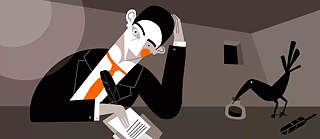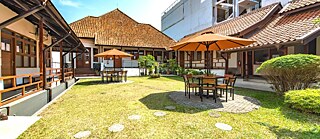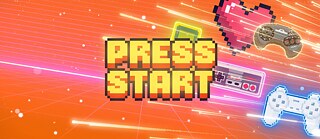

Deutsch lernen
Mit Erfahrung zu Ihrem Erfolg
Das Goethe-Institut bringt die deutsche Sprache in die Welt. In über 90 Ländern bieten wir Deutschkurse und Deutschprüfungen an.
Im Fokus
Was uns bewegt
Besuchen Sie uns!
Zwei Institute in Indonesien
Wir fördern die Kenntnis der deutschen Sprache im Ausland und pflegen die internationale kulturelle Zusammenarbeit.
Jakarta
Jl. Sam Ratulangi 9-15
10350 Jakarta
Indonesien

Bandung
Jalan Martadinata 48
40115 Bandung
Indonesien






